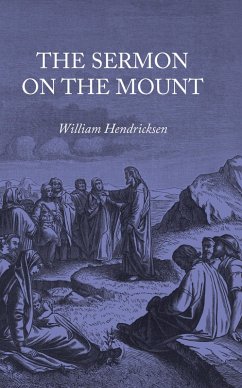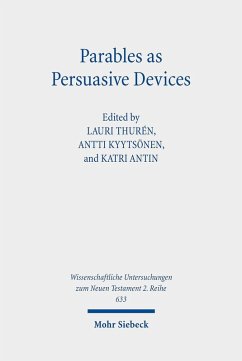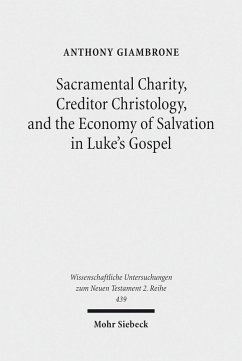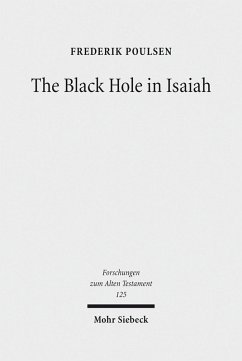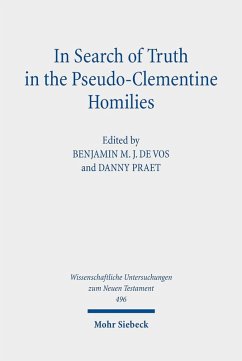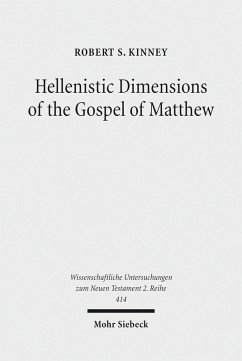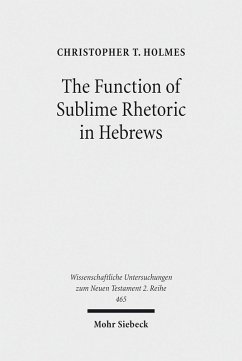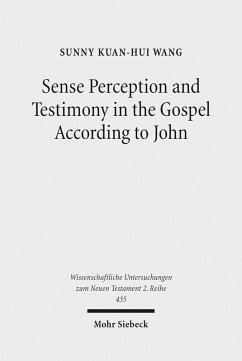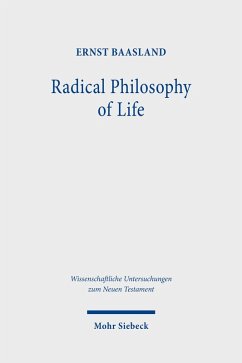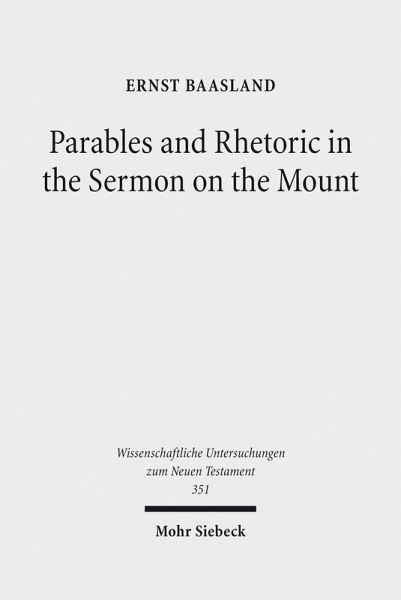
Parables and Rhetoric in the Sermon on the Mount (eBook, PDF)
New Approaches to a Classical Text

PAYBACK Punkte
0 °P sammeln!
Parable research has to a large degree ignored the Sermon on the Mount (SM) and for its part, research into the SM has likewise left the parables by the wayside. However, the use of parabolic language in more than one third of the SM influences its interpretation and indeed opens up a new approach to it. In the current volume, Ernst Baasland focuses on this important factor, whilst also taking the rhetoric of Jesus' teaching into consideration. The author maintains that rhetorical features have a great bearing on the interpretation of the text with the overall structure illuminating the entire...
Parable research has to a large degree ignored the Sermon on the Mount (SM) and for its part, research into the SM has likewise left the parables by the wayside. However, the use of parabolic language in more than one third of the SM influences its interpretation and indeed opens up a new approach to it. In the current volume, Ernst Baasland focuses on this important factor, whilst also taking the rhetoric of Jesus' teaching into consideration. The author maintains that rhetorical features have a great bearing on the interpretation of the text with the overall structure illuminating the entire composition of the sermon. Fresh insights into its oration therefore serve to challenge the source problem in a new way. The religious and philosophical settings of this most well-known of Christ's preachings are clarified by its parables and rhetoric; and the sermon's Jewish background has often been investigated. While the author continues with that particular task, he simultaneously affords more emphasis to the parallels in (Greek) Hellenistic literature. The combining of all these factors leads to a clearer comprehension of the Sermon on the Mount's philosophy of life and provides a better understanding of this classical text. Born 1945; since 1971 lecturer, since 1981 professor at MF Norwegian School of Theology in Oslo; 1990-93 dean of the faculty; 1986 guest professor in Tübingen, 1994 in Princeton and 1997-98 in Hong Kong; 1998-2009 bishop in Stavanger; since retirement 2009 guest lecturer in Stellenbosch, SA and 2010 in Berlin; since 2011 affiliated to MF Norwegian School of Theology and School of Mission and Theology, Stavanger.
Dieser Download kann aus rechtlichen Gründen nur mit Rechnungsadresse in A, B, BG, CY, CZ, D, DK, EW, E, FIN, F, GR, HR, H, IRL, I, LT, L, LR, M, NL, PL, P, R, S, SLO, SK ausgeliefert werden.




